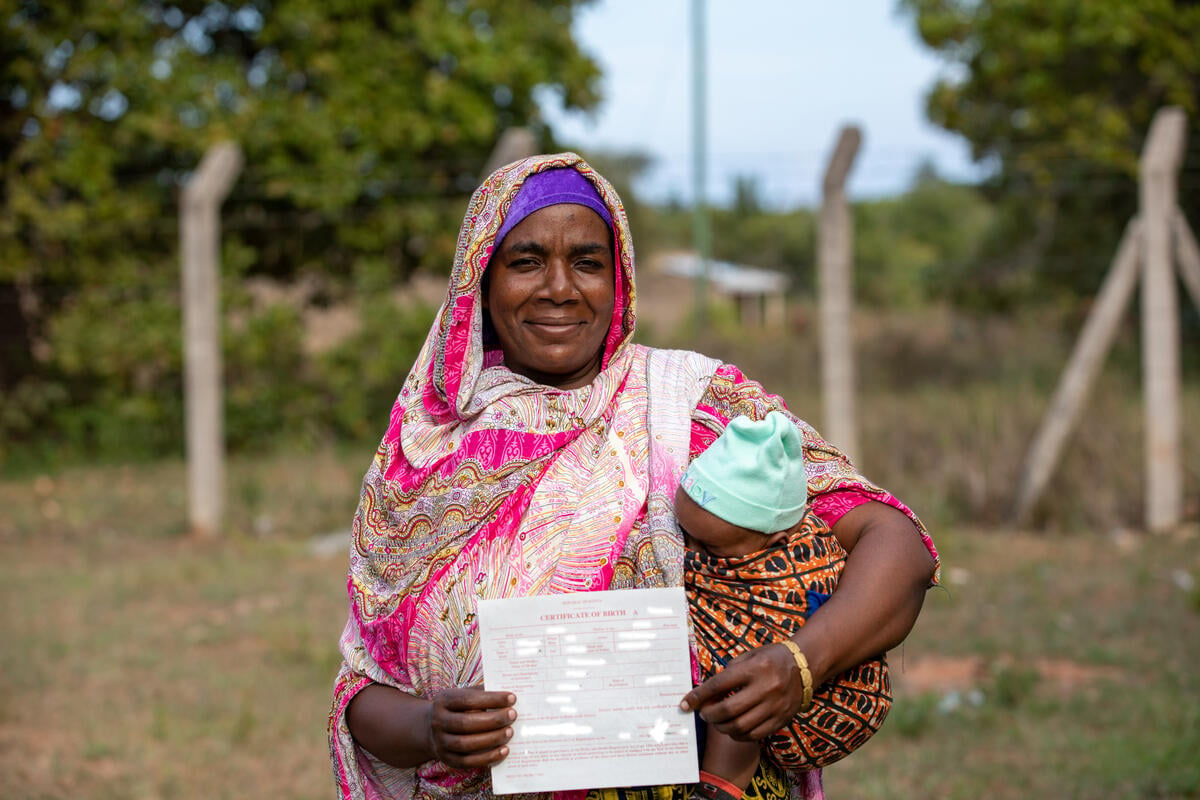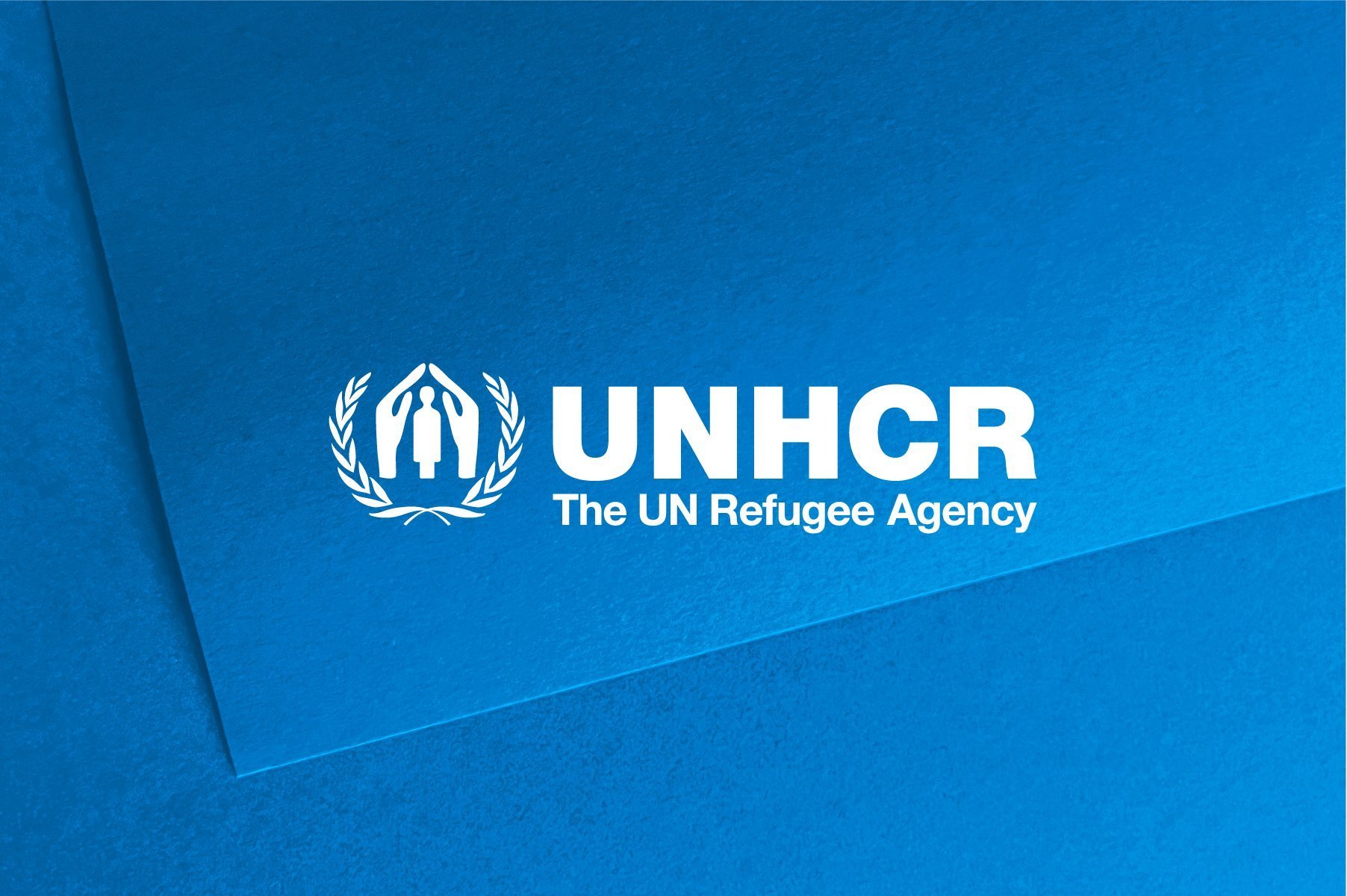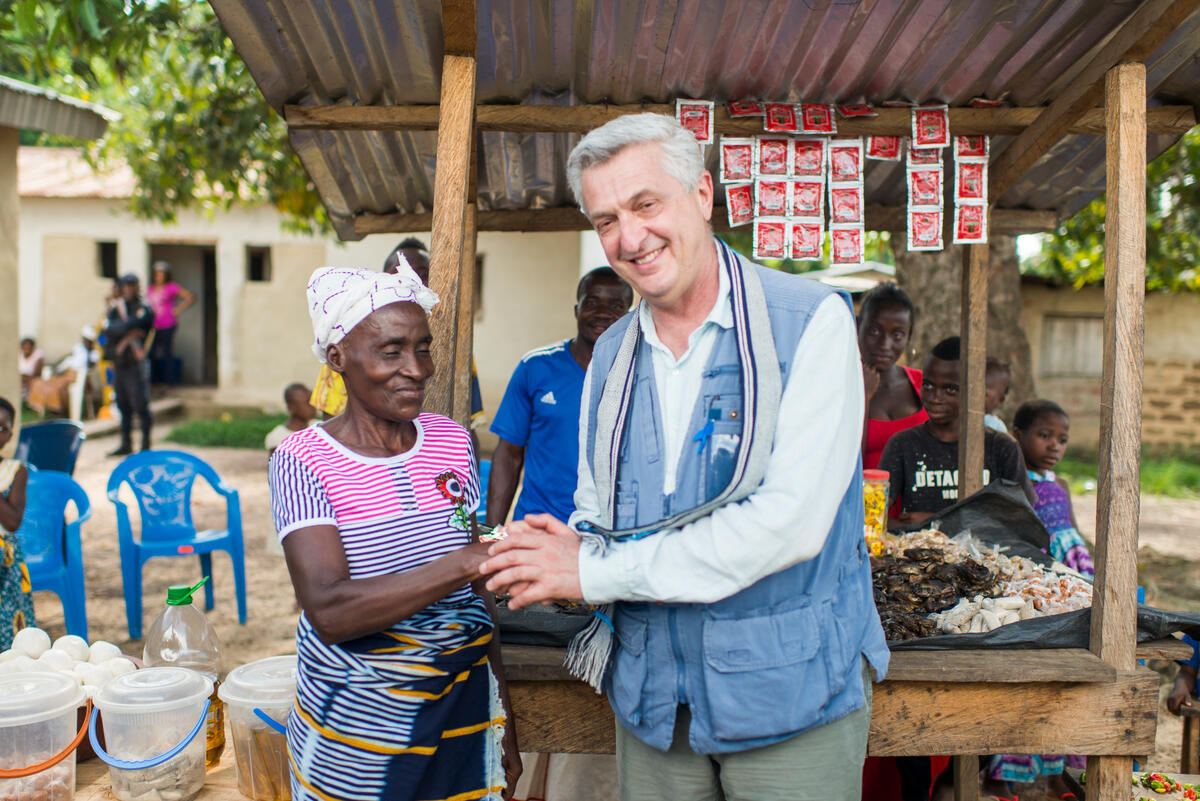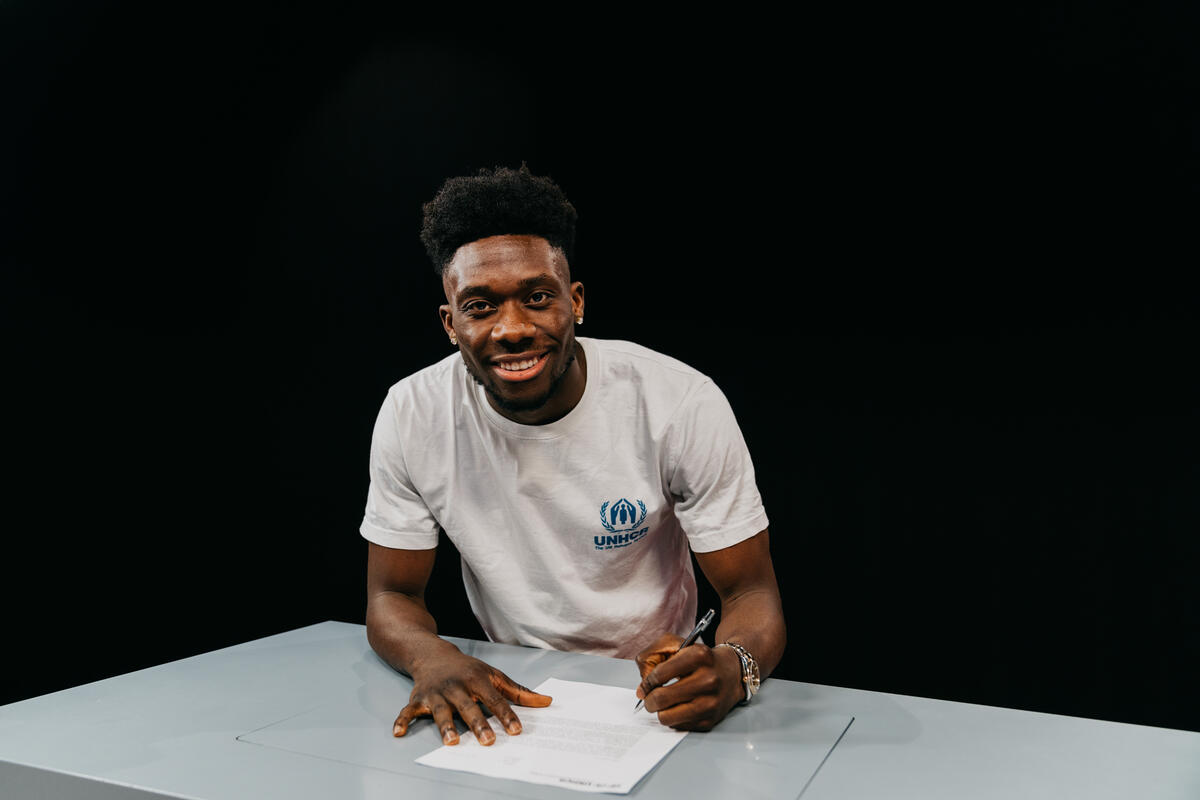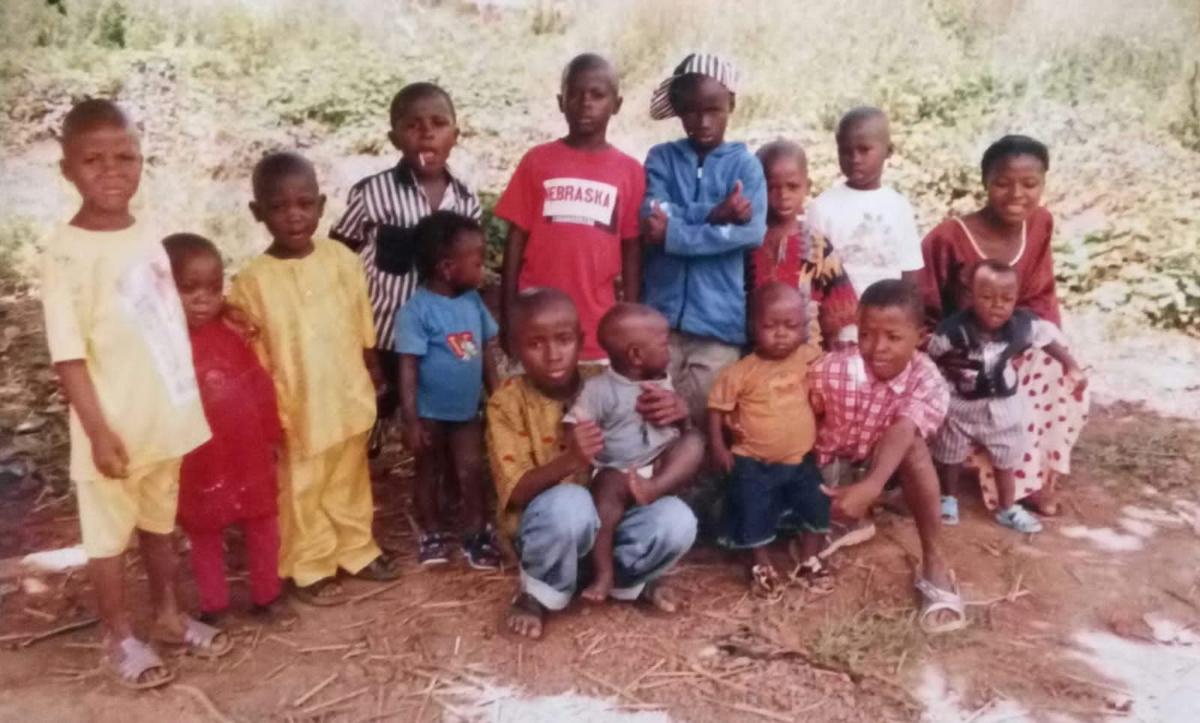A new beginning is always hard: Liberia's elections bring hope of return for thousands of refugees
A new beginning is always hard: Liberia's elections bring hope of return for thousands of refugees

MONROVIA, October 12 (UNHCR) - Under a tattered umbrella barely shading her from the scorching sun, Hannah Swaray, her baby on her back, stood patiently in line Tuesday at a polling office in Monrovia. She was one of thousands of people waiting in long queues all over the country to cast their votes for a President and members of parliament. For Hannah, the day was not only momentous, but also deeply moving. During her years as a refugee, she sometimes lost hope of ever seeing her country again - let alone of voting in a democratic election.
"I joined the queue at five o'clock this morning," she said. "It may take me several hours to reach inside the polling booth but nothing compares to the many years of waiting for this day to finally come." She kept smiling widely as she made her way slowly but surely to the top of the queue in downtown Monrovia.
Hannah fled to Guinea with her children, as well as her brother and sister, after rebel soldiers attacked her village in Forquelleh, Bong County, in 2000. She was separated from her husband and does not know what has happened to him. It was not until four years later, when peace had finally returned to Liberia, that she decided to return home. She has settled with some family members in Monrovia and sells farm products at a local market to support herself and her children. "I dreamt of coming back home, of settling down and helping to build a peaceful nation. No one can do it other than the Liberians themselves," she said.
Tuesday's election was a milestone in Liberia's progress towards rebuilding a nation left in tatters by 14 years of intermittent fighting between rebel troops and government soldiers, followed by a full-blown civil war. Under the rule of former President Charles Taylor, who left office in 2003, an estimated half a million Liberians fled into exile, another half-million were displaced inside the country.
Since then, more than 225,000 displaced people have returned to their hometowns and villages, while some 200,000 refugees have repatriated. Lancedell Mathew is one of them. Today he works for a development agency and he too was waiting in line at a Monrovia polling office on Tuesday. "Withstanding the heat and the snail pace process was a small sacrifice, if Liberia is to move ahead," he said. "A new beginning is always hard." During Liberia's intermittent wars, Lancedell had on three occasions fled the country to Ghana and Sierra Leone. Now he is optimistic that the violence-free election is a sign that his people are tired of war and will work for peace. "We can't give up, voting is the first step and it will encourage Liberians in refugee camps to return home."
UNHCR is also hopeful the elections will pave the way for more Liberian refugees to return home and start rebuilding their lives. So far, UNHCR has assisted the repatriation of nearly 40,000 Liberians, while some 160,000 refugees returned home by their own means. Together with other humanitarian partners, UNHCR carries out reintegration activities including community empowerment projects, restoration of basic services such as water, education and health facilities, as well as agriculture and micro-loan activities. These activities are geared towards increasing the absorption capacity of communities and sustain return.
"Liberians living in refugee camps in neighbouring countries want to come home," says UNHCR's Representative in Liberia, Mengesha Kebede. "Being able to witness a peaceful, democratic election should provide the impetus needed to make them feel secure enough to repatriate."
The facilitated voluntary repatriation of Liberian refugees started a year ago on 1 October 2005. Repatriation has been carried out by land, sea and chartered flights from countries of asylum in the region. The refugee agency suspended its repatriation exercise for two weeks during the election period. The operation will resume on 17 October.
By Sarah Brownell in Monrovia, Liberia


